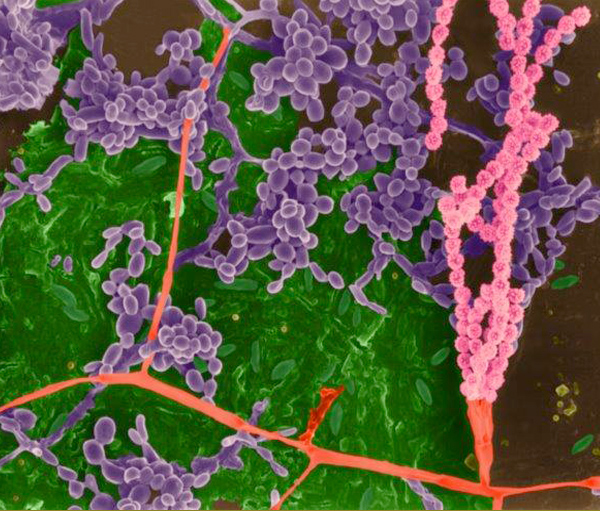
© Dennis Kunkel Microscopy
Hepatitis A is a Hepatovirus that is most commonly associated with foodborne illness.
What diseases are caused by Hepatitis A?
This virus causes fever, malaise, anorexia, nausea and abdominal discomfort followed the most prominently by jaundice or the yellowing of the skin and eyes. The infectious dose is unknown, but is thought to be as little as 10-100 virus particles.
Incubation Period
Fifteen to 50 days with an average of 28-30 days.
Epidemiology of Hepatitis A
Hepatitis A is considered to be a disease with a relatively low case-fatality rate. The virus is passed from person to person via the fecal-oral route. Numerous outbreaks within the United States have been attributed to the consumption of food or water that has been cross contaminated by infected food handlers.
There have also been cases attributed to drug use, sexual activity between acute cases and instances of transmission due to transfusion of blood. Studies indicate that the virus is most infective during the latter half of the incubation period. The virus may be shed for up to 6 months in infants and children.
Diagnosis
Diagnosis of this disease is most commonly completed by demonstration of IgM antibodies against hepatitis A virus (IgM anti-HAV) in the serum of acutely ill or recently ill patients. The IgM anti-HAV becomes detectable 5-10 days after exposure.
Treatment
Hepatitis A is a self limited disorder and unlike many bacterial diseases, this disease will not respond to antibiotic treatment.
Contact EHA Consulting Group today for more information about how we can assist your company.
We offer services for
- Retail Food Safety
- Restaurant Food Safety
- Manufacturers
- Food Trucks
- Drugs & Cosmetics
- Melons & Cantaloupes
- Produce
- Warehouses
- Food Packaging & Packaging Materials